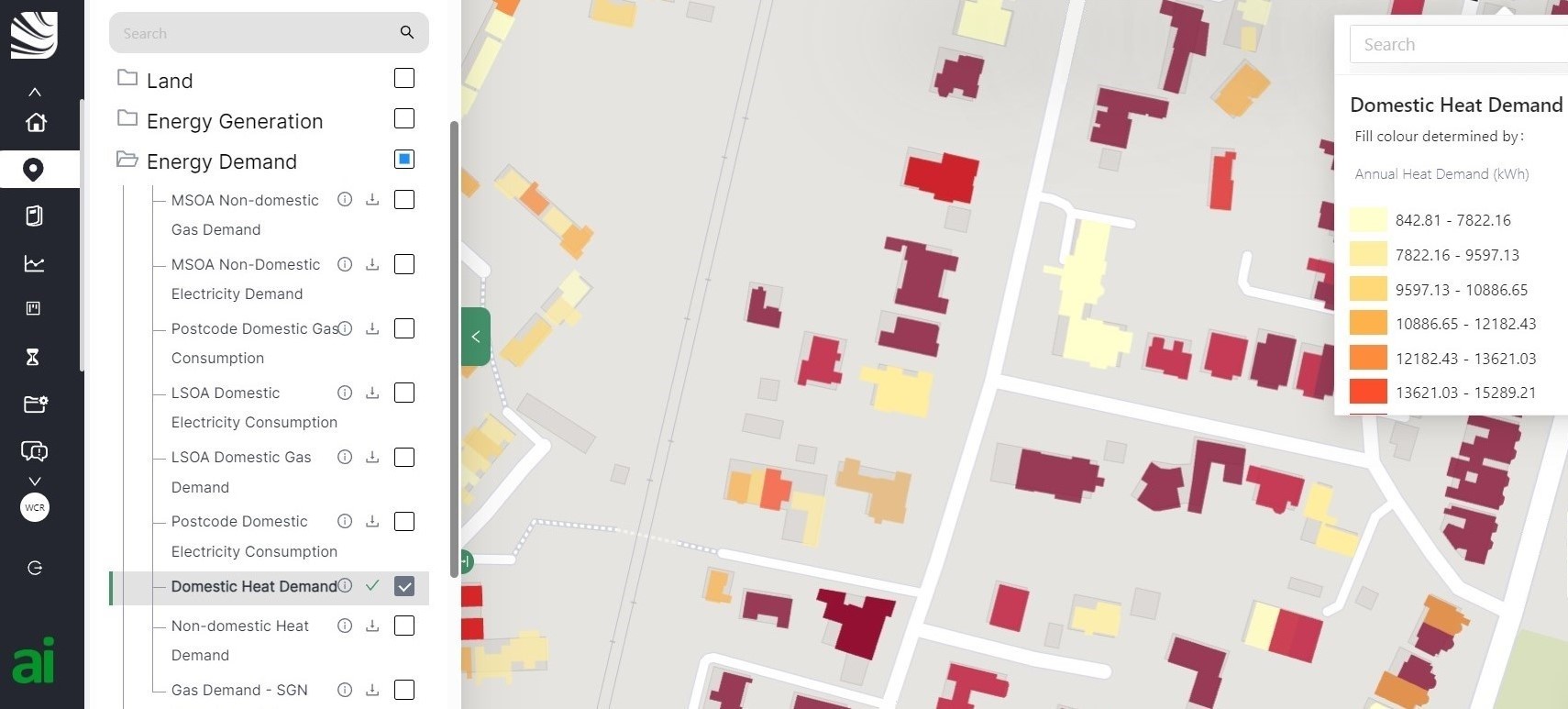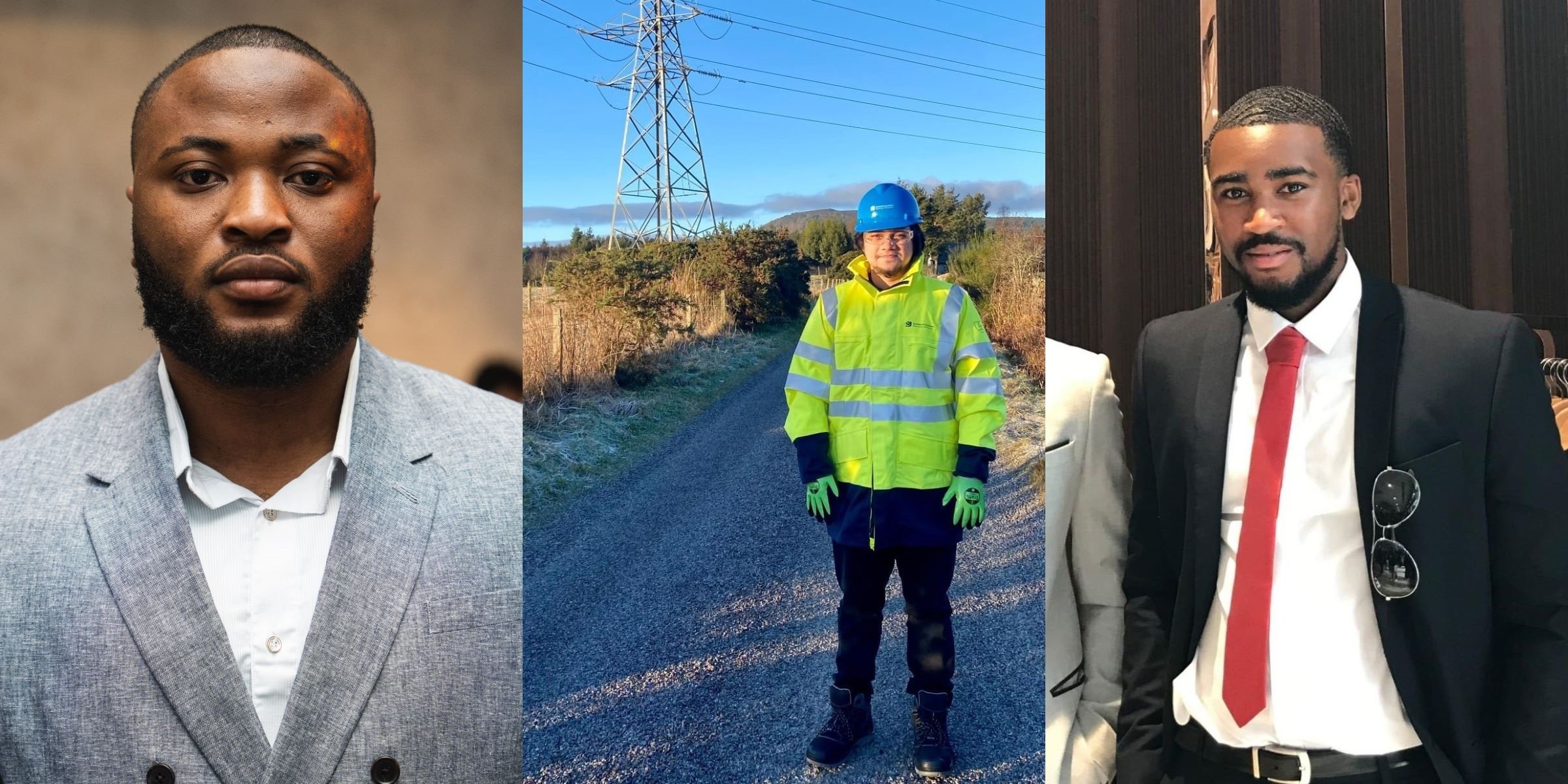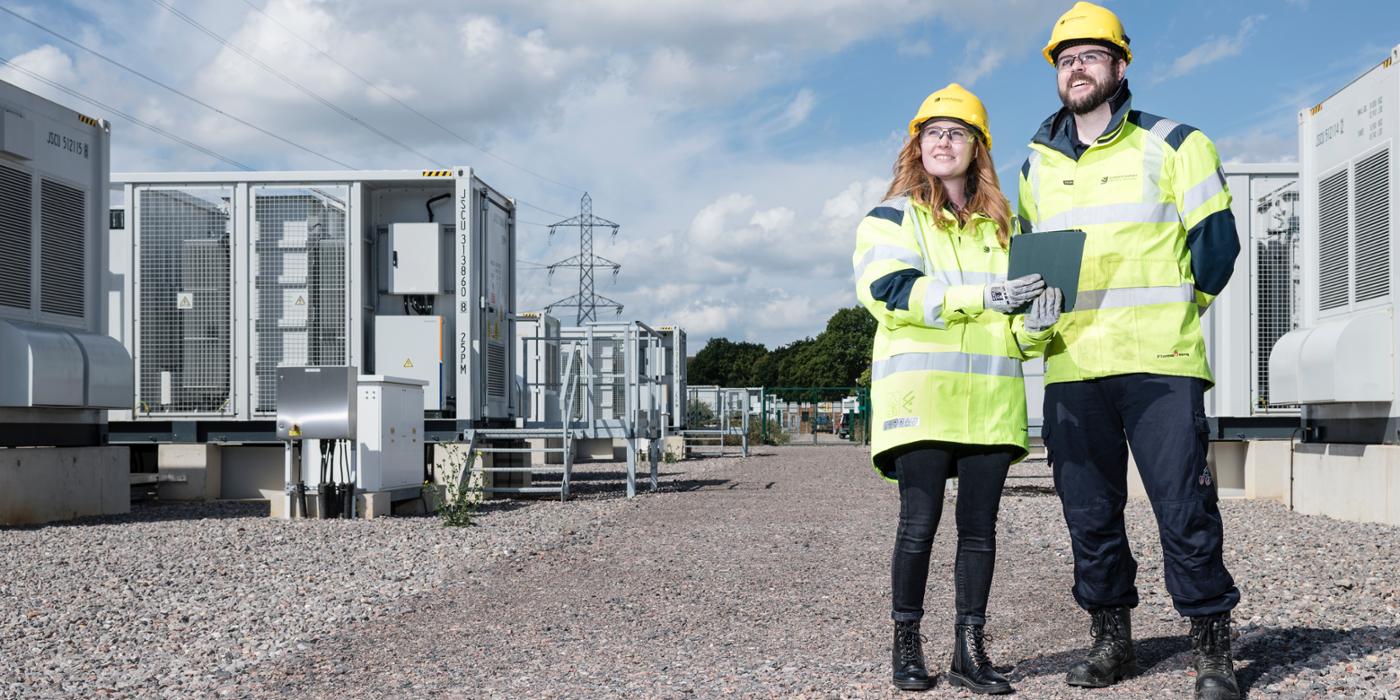Scottish and Southern Electricity Networks, the Distribution Network Operator for central southern England and the north of Scotland, is expanding our sector-leading support for local authorities in our licence areas, by allocating graduates to help them accelerate their local net zero plans.
Between now and the early Autumn, a number of our graduates will carry out work with teams from six local authorities. Every local authority in our two licence areas already has access to a team of Net Zero Engagement Specialists, and the support they provide will continue alongside the work that will be done by the graduate team over the next few months.

ABOVE: A visualisation of SSEN's LENZA tool interface
Our trailblazing LENZA (Local Energy Net Zero Accelerator) tool will be critical in developing Local Area Energy Plans (LAEPs). The work our graduates are now undertaking with local authorities comes at a critical time in LENZA’s ongoing development. It will allow SSEN to test the tool’s functionality in real-world situations, while also helping develop local authorities’ own insights and inform their forthcoming planning decisions.
Local Area Energy Plans are vital means by which local authorities can lay out the changes and resources needed to bring about net zero, and which in turn will help SSEN effectively plan its future network. SSEN is encouraging all local authorities to make such plans, and is following through on this call with practical, and proactive support that will help make this happen.
The local authorities SSEN’s graduates will be working with are Winchester City Council, West Sussex County Council, Wiltshire Council, The Highland Council, Oxford City Council, and Southampton City Council.
Sarah Kerr, who is one of SSEN’s Net Zero Engagement Specialists and is co-ordinating the graduate programme with local authorities says:
“It’ll be great to see how our excellent group of graduates will both support our local authority stakeholders and put LENZA through its paces. Given how enthusiastic we are here at SSEN about supporting their work in this field, having our graduates supporting local decision-makers in this new way feels like an obvious step to add to the sector-leading work we already do.
“The LENZA tool is vital for providing the information and insights that will support local net zero planning in the near future, and the work our graduates will undertake with local authorities in the weeks to come will provide invaluable opportunities to test and refine this tool.
“This is the first time we’ve offered this particular kind of support, so we’ll be assessing its effectiveness over the coming weeks to see how we can further develop the assistance we offer local authorities in our licence areas.
“This programme will also give our brilliant graduates even more experience and insight at this critical stage in their careers. Their success and development is good news for all our net zero ambitions.”
Councillor Kelsie Learney, who is Cabinet member for climate emergency at Winchester City Council, says:
“Infrastructure is proving a major barrier to decarbonising our district, whether it’s supplying renewable energy into the grid or powering and heating our homes, vehicles, and workplaces with zero carbon electricity.
“The dedicated resource provided by SSEN through this collaborative pilot project will support the development of our Local Area Energy Plan, helping us plan the strategic improvements which will lead to the Winchester District going greener, faster.”
Graduate Profiles

ABOVE (L-R): SSEN graduates Faruq Lawal, Md Moontasir Rashid, and Kennedy Josiah.
Faruq Lawal, Md Moontasir Rashid, and Kennedy Josiah are three of the SSEN graduates who will be supporting local authorities this summer. Faruq has a Bachelor’s degree in Electrical Engineering and a Master’s in Energy Engineering. He is part of SSEN’s Future Networks team and is looking forward to showing the local authorities how the LENZA tool can create tailored energy solutions that will support sustainable development.
Rashid has a Dual Master’s Degree focused on energy engineering and smart grids. He is currently involved in the testing and development of LENZA. He says the opportunity to work with local authorities this summer reflects both his professional interests and his personal commitment to doing what we can to secure a net zero future.
Kennedy holds a Bachelor’s degree in Electrical and Electronic Engineering and is in his second year of SSEN’s graduate programme. He sees his involvement in this work as a chance to design and develop efficient, sustainable distribution models that can meet the needs of communities and pave the way for a more resilient and eco-friendly future.
